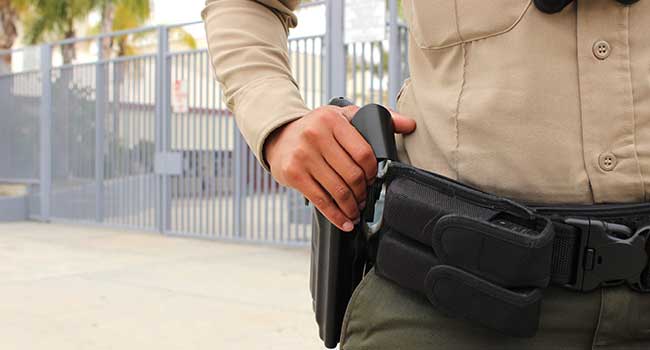
Florida Elementary Schools Deploy Two Dozen Armed Guards
According to Brevard County Sheriff Wayne Ivey, the newly hired guards have a total of 248 years of prior law enforcement and 211 years of prior military experience.
- By Jessica Davis
- October 17, 2018
More than two dozen armed security guards will be implemented at elementary schools in Brevard County, Fla., next week. The armed guards are part of Brevard County Public School’s plan to have a designated armed presence on campuses to increase security.
After the February shooting at Marjory Stoneman Douglas High School in Parkland, Fla., state lawmakers passed legislation that requires armed security staff to be posted at every school campus. The Brevard School Board approved the hiring of security guards in May.
Brevard County’s security guards will be posted at the district’s elementary schools that do not have dedicated school resource officers. All of Brevard’s middle and high school campuses have armed school resource officers.
According to Brevard County Sheriff Wayne Ivey, the newly hired guards have a total of 248 years of prior law enforcement and 211 years of prior military experience.
"When you look at their level of experience of prior law enforcement and prior military, I can tell you from a personal point of view [...] it was a good feeling to know that these are the kinds of people that have applied to these positions to help protect the schools," Ivey said.
He added that the school security specialists have finished their training, which consists of 140 hours of firearms, defensive tactics, diversity and mental health training conducted by Florida Department of Law Enforcement certified trainers.
Most of the training and equipment costs for the new guards, including their guns and tactical vests, were reimbursed by the Florida Department of Education with money earmarked for the Guardian Program. The Guardian Program, named after Coach Aaron Feis who was killed in the Marjory Stoneman Douglas shooting and had attempted to protect students during the incident, provides funding for armed campus security in Florida.
The armed guards will be employees of the district, which has budgeted about $1.2 to $1.4 million to hire them. They will not be issued marked patrol vehicles.
About the Author
Jessica Davis is the Associate Content Editor for 1105 Media.